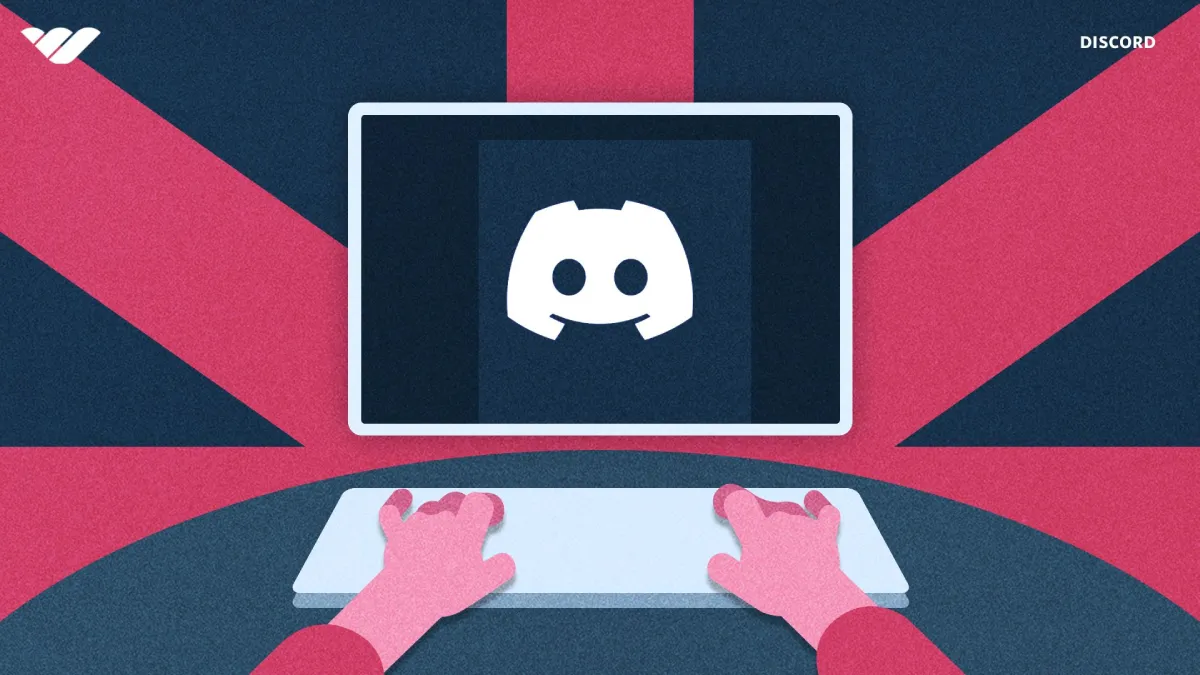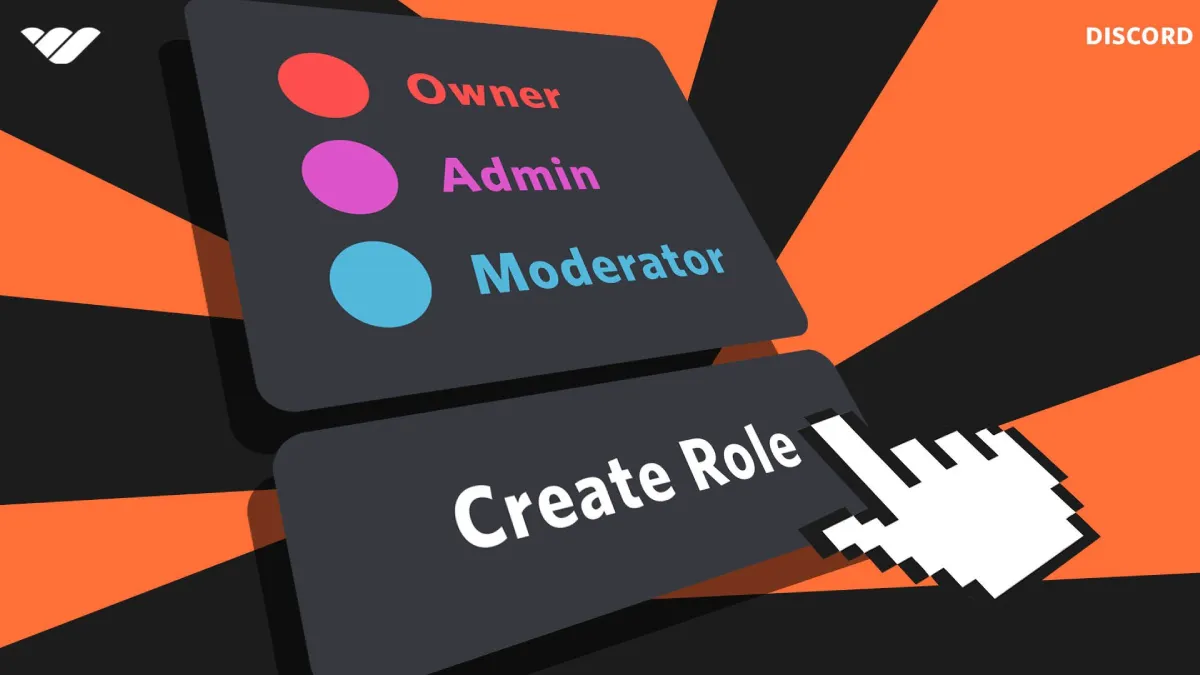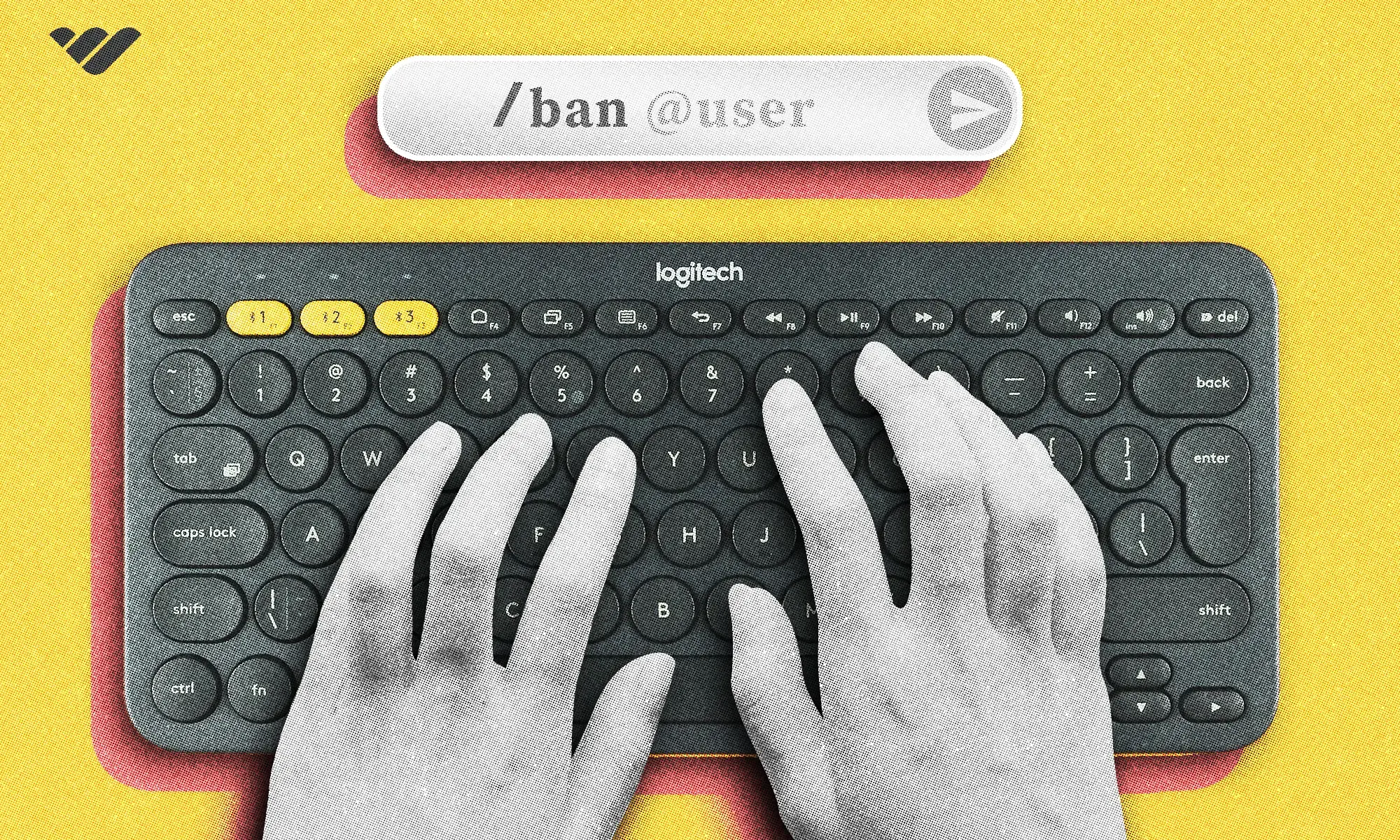Take a closer look at what Discord moderators do, how they help to keep your server running, and the steps you can take to find the perfect moderator for your community.
Key takeaways
- Plan your server's purpose and strictness level before recruiting to find moderators who match your vision.
- Build a diverse moderating team with a 'Devil's Advocate' to ensure objective and balanced decision-making.
- Proper onboarding with clear role definitions and conduct codes is essential for effective moderator performance.
Moderators are at the heart of all thriving Discord communities. In any large online group, you will find at least one moderator, if not a whole moderating team. But, what is a moderator, and why do you need them?
Let's dive in to explore what moderators do, why you need them, and how you can find the right mods for your team.
What is a moderator?
While moderator is an umbrella term, it usually means a user who has been granted specific permissions to oversee the server. The responsibilities of a Discord moderator (commonly known as a Discord 'mod') typically include but are not limited to ensuring that the Discord server's rules are being followed, managing channels, engaging with the users, dealing with conflicts, and generally providing support for the server.
How your moderators (aka mods) act will define the rough shape of your member base, making finding the right moderators essential.
Why your Discord server needs a moderating team
Managing a Discord server is a lot of work. There are so many responsibilities competing for your attention, from communicating with members to overseeing events, maintaining the quality of the server by removing spam, ensuring that any server bots are working as they should - and of course, growing your Discord server.
Since your responsibilities tied to the server are much more than a regular moderator role, you'll need people to help you lighten your load by taking over internal server-specific tasks like moderating the server, overseeing events, managing members, and more. With the moderators focusing on these tasks, you can focus on the marketing and monetization of your server.
How many moderators do you need?
The all-important question - how many moderators does your server need? There are some small hobby servers with no moderators at all and larger, educational servers with whole mod teams of 20 + moderators.
The number of moderators that you need depends on several factors: member count, channel count, active members, hostility of the members, and experience level of the moderators. As a basic rule of thumb, you'll need one moderator for every two active channels. For every 20 daily active members, you'll need one moderator. If these active members usually chat in the aforementioned active channels, a single moderator should be able to handle them.
Why do you need such a robust moderating team? Well, the moderator(s) in question should be able to hold serious conversations, have strict adherence to the server values, enforce the rules with confidence, know the Discord Terms of Service and Community Guidelines like the back of their hand, and be able to shut down any bad actors with necessary force. Essentially, moderators ensure the quality of the server and its members. Check out this article for more information about Discord server management.
Keep in mind that you don't want moderators who will abuse their power or treat people with disrespect, as this will only damage the reputation of your server.

How to find Discord moderators
The first thing you should do before starting to look for moderators is understand the purpose of your server, and how you want your members to engage with it. Consider the following questions to flesh out your Discord server plan.
Defining your server
- Is your server private (friend group, closed community) or public (content creator, LFG)?
- Private
- Public
- How strict is your server?
- Casual
- Mildly strict
- Strict
- What's your server category?
- Chatting
- Content Creator
- Education
- Fandom
- Gaming
- Meme
- Project
- Work
- Other...
- How many members are you aiming for in a year?
- Is your server's topic sensitive? (Politics, religion, memes, etc)
- Yes
- No
Key Point: Servers with sensitive topics attract bad actors more than others.
Once you have a clear image of your server, it's much easier to think about how your moderators should look, talk, act, and enforce. This will help you in filtering applications much faster.
To start taking applications, you must find a platform to announce that you're looking for mods. These platforms include freelancer platforms like UpWork, Discord Admins server (if you can get access), and other Discord servers that serve as a platform to find moderators. You could even post on the official Whop Discord at https://discord.com/invite/24YeRgNrU4.
Remember that if your friends share the same vision with you, they could be a great addition to your staff since you already have a strong connection with them. If you're filtering among people you don't know, you should continue with the ones that show kindness, understanding, friendliness, confidence, and similar traits. A good moderator should make your members feel like they can talk to them without getting shut down and take feedback about anything -even if it's destructive- to them without facing repercussions.
Another important thing you should consider is the diversity of your moderator team. Your team should always have at least one 'Devil's Advocate' to ensure the team is objective and making the right decisions. And, of course, all moderators should be active members of your community.
Application options
There are a lot of ways to take in applications, so you have to ask yourself what interview method you would like to use. You can talk to applicants in a voice channel, send them an online form (which can also be done using a bot), or conduct a public interview where people vote for their favorite applicants. If you have a big server with a heavy moderation workload, a video chat is the best way to do this.
No matter which option you choose, you need to ask the applicant questions to determine if they're a feasible moderator for you or not, and we're here to give you some examples!
Discord moderator interview questions
- Name: Exchanging names is the first step to forming a connection with your moderator.
- Age: Your moderator's age matters depending on your server's topic. If your server is about Derivatives and Economics, you're less likely to be looking for a 16-year-old moderator. But if your server is about gaming, a 16-year-old moderator -who's in the gaming loop- could do wonders! If you're looking for a paid moderator, you don't want anyone younger than 18, so you can ask for proof if needed, but make sure to look up the legality of this in your area of residence.
- Occupation (work, school, unemployed, parent): While rather personal, this information will help you determine whether the applicant fits the role. Some people might be busy due to their occupation, which can clash with your time zone's most active timeframe.
- Hobbies: You can learn a lot about a person by knowing their hobbies. Consider your ideal moderator and what they like to do in their spare time.
- Experience (link if possible): While this isn't an undisputed fact, more experience usually means better moderators. This, of course, doesn't mean an inexperienced applicant is the wrong choice. None of the questions can provide a final answer, but they will do it together.
- What would you add to/remove from our server?: This question will allow you to tap into their moderator mindset. As the owner, you should know your server's strong and weak points; if the applicant mentions the things you know, that's good. If they mention things you don't know, even better!
- Time Zone: This, of course, depends on the server. For example, if your server is a Japanese-only server, you don't have to ask for their time zone; it's most likely JST, and you know it already. On the other hand, if your server is international or spans a large area with different time zones, you should ask this question so that you can build a moderating team that is active 24/7.
- Why do you want to join our staff?: It's a classic question but for a good reason! This question is the ultimate filter. It will allow you to see the reasoning of the applicants.
You should tailor these questions to your server. We suggest adding quiz-like questions such as "If someone is being a bad actor without breaking any rules, what's the penalty for it?" and "If someone is spamming, what do we do?" These are great questions because they give you insight into how their "moderator mind" thinks.

How to onboard moderators to your team
Onboarding moderators is a delicate task that will influence the connection of your new mod(s) with the rest of your members and staff. If the onboarding process is not efficient and thorough, it could result in a low performance from the moderator, through no fault of their own.
You must clearly define their role, what you expect from them, and how they should act in the onboarding process. You can prepare a 'Code of Conduct' for your moderators to help them enforce your Discord server rules and act as expected. Plus, you should also provide an expected schedule so they know when to be online. Of course, the training of a moderator is not complete once the onboarding is done. Your moderators will always continue to learn and adapt to new members.
How to promote and demote Discord mods
Promoting a moderator usually means giving them elevated permissions, and sometimes more team responsibility (like becoming 'head mod'). Being a moderator doesn't always mean eventual promotion, but it usually does. Awarding someone for their work is a good feeling and encourages the moderator to continue the good work.
On the other hand, demoting a member of your staff can be a daunting task, one that many people will avoid. Let's take a look at how to do both.
Promoting a Moderator
Deciding when to promote a moderator really depends on your needs and expectations. Your moderators will usually deal with members and let you know when someone with elevated permission has to take an action like kicking or banning a member. This will happen often, but once it starts to feel like it is happening too much, it's time to promote them!
Moderator permissions differ from server to server. While one server might give ban permissions to moderators, others might give them permission to timeout and nothing else. Promoting usually means higher permissions, but it also means elevated influence. Think of the influence difference between a moderator and an admin.
You should always survey your moderators' performance via bots, manual checks, or weekly syncs with other mods. If you start to see a moderator remarkably underperforming, consider demoting them.
Demoting a moderator
How you demote your staff largely depends on your type of leadership. You can let them know about their performance and give them a one to two-week long period to improve, you can write a message about their performance and how they can't meet your standards before taking away their role, or you can assign automated KPI roles that will remove their role if they underperform. It's always best to be understanding, communicate, and be mindful of their feelings.
If the moderator has acted in an extremely unprofessional manner and publicly caused distrust in your server, then you may consider muting them right away, then following up with a professional meeting about their conduct. If this happens, remember to keep your members informed on how you have dealt with the situation, in order to regain their trust.
Running a successful Discord community with Whop
It's clear to see that running a Discord community is no easy task. So, it is important to delegate as many tasks as you can, so that you can focus on growing your server. Finding a great moderator, or team of moderators, is key to keeping your server running smoothly. Take the time to find the right moderators for your community - people that you can trust to take care of your members.
Once you have a solid moderating team, you can turn your attention to growing and monetizing your server. When that time comes, be sure to sign up to Whop.
Whop can help you take your Discord server from free to paid, with a full suite of tools to manage and monetize your server. Check out Whop today to discover the next steps for your online community!



